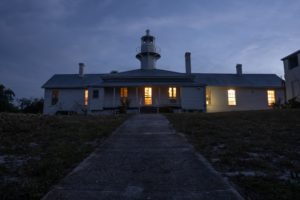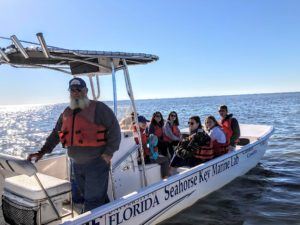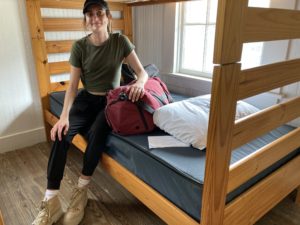Coasts, Climates, the Humanities, and the Environment Consortium: University of Florida, January 26-28, 2023
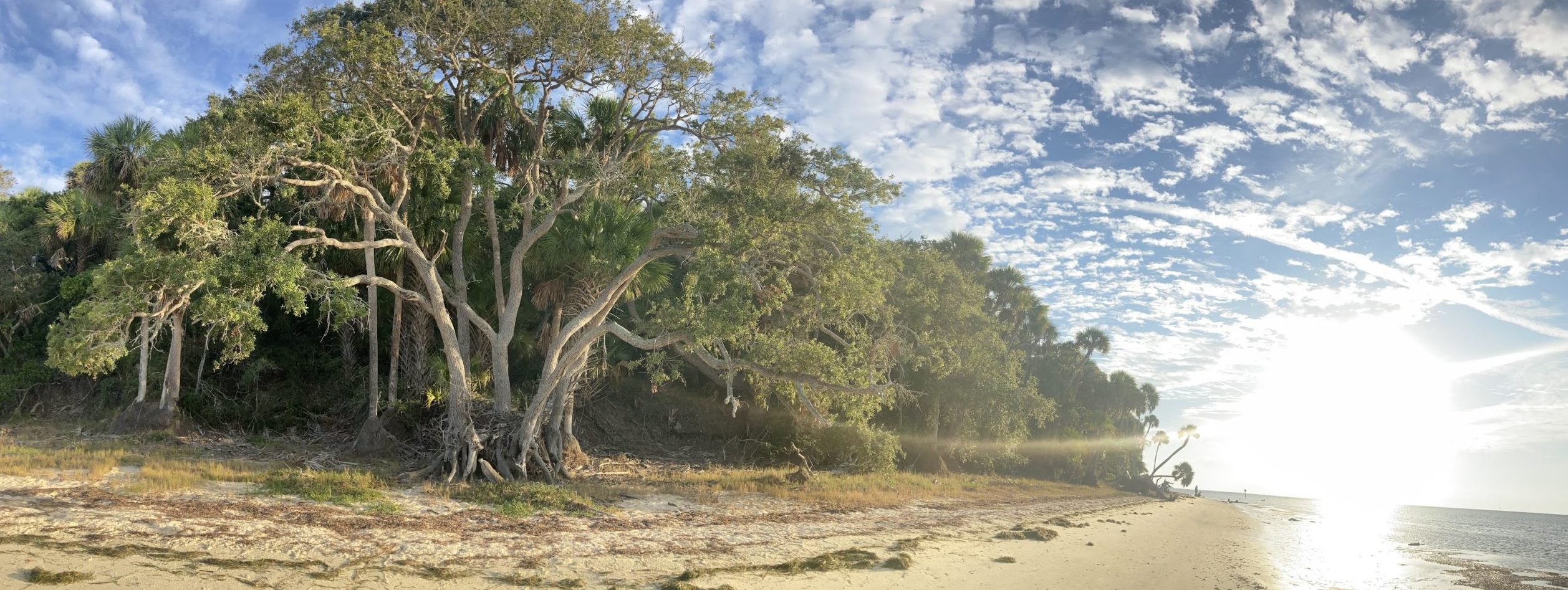 Barbara Mennel and her colleagues at the University of Florida will host the next meeting of the CCHEC group at Gainesville, with a visit to the beautiful Cedar Keys as part of the itinerary.
Barbara Mennel and her colleagues at the University of Florida will host the next meeting of the CCHEC group at Gainesville, with a visit to the beautiful Cedar Keys as part of the itinerary.
Spaces are limited as we will stay overnight in a historic lighthouse on Seahorse Key. Please register by December 1 to attend. Participation will be on a first come, first served basis. Your travel and other costs will be covered.
Please fill out this registration form, save and download it, then send it to Barbara Mennel at mennel@ufl.edu. The detailed information requested in the form is required to create a UF ID necessary for reimbursement.
Before you arrive, you may learn about Cedar Keys fishing heritage and clam aquaculture industry in Cedar Key Everlasting. Please read John Muir’s essay, “Cedar Keys,” before the trip. The schedule for the trip is below.
For questions, contact Barbara Mennel at mennel@ufl.edu.
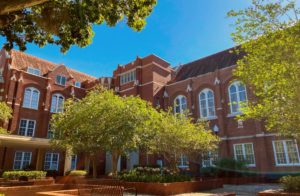 THURSDAY, JANUARY 26: Arrival by members of Mellon Consortium
THURSDAY, JANUARY 26: Arrival by members of Mellon Consortium
5 pm • Public Lecture by Dr. Nicholas Allen: “Public Humanities as Environmental Humanities”
University of Florida Smathers Library, Room 100
7 pm • Dinner for participants of Mellon Consortium and Dr. Mike Allen
Blue Gill Quality Foods, 1310 SW 13th St.
Overnight • Stay in Gainesville
AC Hotel, 151 NW 14th St.
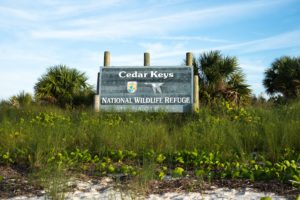 FRIDAY, JANUARY 27: Excursion to Cedar Key
FRIDAY, JANUARY 27: Excursion to Cedar Key
8:30 am • Departure from Gainesville with chartered UF bus to arrive in the town of Cedar Key on Florida’s Nature Coast by 9:45 am for an introduction to the area’s fishing heritage and shellfish aquaculture with researcher/clammer Leslie Sturmer at UF’s Shellfish Aquaculture Research Field Station.
10 am • Arrive at Nature Coast Biological Station, where director and fisheries scientist Dr. Mike Allen will introduce the ecology and changes underway in this estuarine region where the Suwannee River meets the Gulf of Mexico.
Noon • Depart Cedar Key to tour the Cedar Keys National Wildlife Refuge, including a look at the clam leases and a picnic and hike at Atsena Otie Key, a formerly developed island abandoned after a great hurricane in 1896.
2 pm • Arrive at Seahorse Key, where we will be spending the night in a nineteenth-century Lighthouse. Please note this is a rustic, open-bunk layout. In addition to dressing warmly in clothing comfortable on a boat if the forecast dictates, and bringing anything needed for overnight, everyone should bring a refillable water bottle, a flashlight, and twin sheets and a blanket or sleeping bag.
4 – 6 pm • Lightning talks in the Lighthouse followed by small-group conversations organized by Dr. Barbara Mennel, director of the UF Center for the Humanities and the Public Sphere.
6:30 pm • Seafood boil dinner.
Evening • Possible options (tbd): Presentation of StoryMap, walks on beach, nighttime exploring with flashlights, informational talk by Jack Davis on John Muir and the Gulf.
Overnight • Stay at the Lighthouse
Morning • Informal breakfast and explore the island on your own. Optional excursion by boat with Dr. Ken Sassaman to nearby North Key to witness shoreline exposures of archaeological middens dating to the past 4,000 years and a short description of what these remains tell us about changing climate and sea level
10 am • Depart Seahorse Key by boat
By 11 am • Depart Cedar Key with chartered UF bus for flight departures from Gainesville no earlier than 2 pm. (Delta flights to Atlanta at 2:17 and 5:16.)
Optional only for visitors with their own or shared cars (not dependent on UF bus): Enjoy Saturday night on Cedar Key in historic lodging such as the Island Hotel (recommended!) or a number of other hotel/motel/AirBnB options. (Please arrange in advance.)
Below: University of Florida students on a boat excursion and during an overnight stay at the Seahorse Key Lighthouse.

